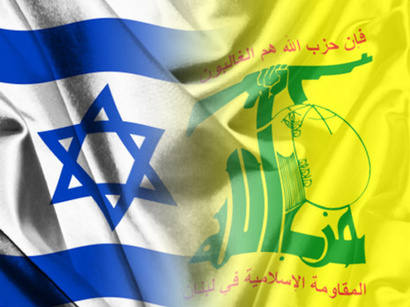Ultimately the odds were never in Mr Blair’s favour. He took on an impossible and thankless task
Read More »
Julie Lenarz May 29, 2015 Latest Articles, Middle East and North Africa
Ultimately the odds were never in Mr Blair’s favour. He took on an impossible and thankless task
Read More »Julie Lenarz March 27, 2015 Latest Articles, Middle East and North Africa
Israelis appear to be the most incompetent genocidaires to ever walk this earth and are responsible for the only large-scale annihilation campaign in history where the victim population actually increased.
Read More »Rebecka Buchanan March 14, 2015 Global Governance and Human Rights, Middle East and North Africa
Due to the structure of the International Court of Justice it is unlikely that any case will be brought before it as both states would need to award the Court jurisdiction over the matter.
Read More »Tom Fenton March 6, 2015 Latest Articles, Middle East and North Africa, Security and Defence
Neither side really wants a full-scale war, but unintended escalation is very much possible.
Read More »Tom Fenton February 10, 2015 Latest Articles, Middle East and North Africa, Security and Defence
In the end a moderate pact of Libyans — and a united and forceful international response — is needed to save the country from the ledge from which it is currently leaning. It will take time, it will cost money and it will require long term planning. But inaction now will only lead to the need for action later.
Read More »Julie Lenarz and Michael Miner February 1, 2015 Latest Articles, Middle East and North Africa
Sunni Wahhabism or Shi’ite fundamentalism paired with nuclear weapons or access to nuclear material is a nightmare scenario of the worst sort.
Read More »Guest Contributor November 5, 2014 Middle East and North Africa, Opinion
The U.S. has been clear that it will not coordinate its operations against IS in Syria with the Assad regime. And most proponents of various strategies to address the Syrian situation stipulate that Assad must go. He isn't after all a highly imperfect force for stability, his actions in the last three-years have proven from the start to have very destructive and destabilizing effects. His pounding to rubble of Syria's cities has caused a giant refugee crisis in the region and burdened neighbouring Lebanon, Jordan, Iraq and Turkey.
Read More »Andrada Filip October 23, 2014 Iraq and Syria, Latest Articles, Middle East and North Africa
On the 21st of August 2013, the biggest chemical weapon attack since the tragedy of Halabja, in 1988, occurred in Syria. The US had detailed evidence of strategic planning on behalf of the Assad forces, leading up to the attack. A report released by the White House on the 30 August 2013 stated that the Assad regime was keeping track of all those targeted in the chemical weapons attacks from the East Ghouta region of Damascus, which lead to the deaths of 1,400 people.
Read More »Rowan Allport October 21, 2014 Iraq and Syria, Middle East and North Africa, Security and Defence
The commencement of air strikes against the assets of ISIS in Syria last month marked the opening of the US-led coalition’s second front against the extremist group. But behind the immediate campaign to counter the terror organisation, the question regarding what to do about the Assad regime – a government responsible for far more deaths than the toll inflicted by ISIS – looms large.
Read More »Guest Contributor October 15, 2014 Middle East and North Africa, Opinion
While the United States administration has been successful in establishing a multinational coalition to fight the Islamic State (IS) it to date has yet to devise a clever strategy for doing so. Using its cutting edge technology to deliver the fight to an irregular Islamist group through bombing runs and cruise missile attacks clearly is no way to defeat IS. And the administration admits as much. The brunt of the fighting on the ground against IS is still being endured by the Kurds. And not just the Kurds of Northern Iraq, but the Kurds of Syria also.
Read More » Human Security Centre Human Rights and International Security Research
Human Security Centre Human Rights and International Security Research